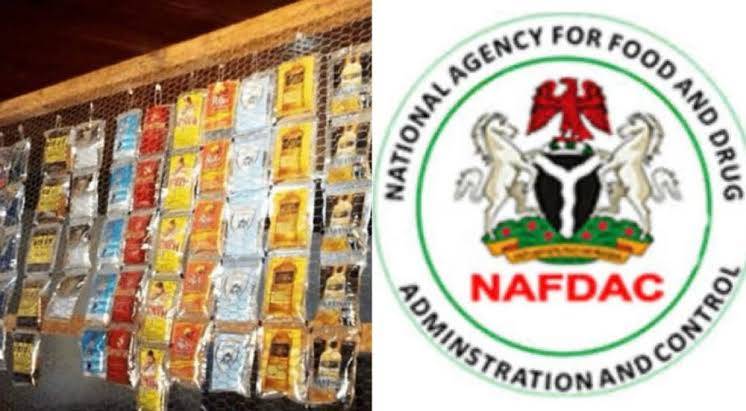Nigeria’s agribusiness and food industry is undergoing a transformation, with a new generation of businesspeople creating products that leverage the country’s vast agricultural resources. We highlight seven Nigerian entrepreneurs making a name for themselves in the agribusiness and food industry.
1. Supplying Nestlé and Unilever with cassava products

Smallholder farmers delivering cassava to Psaltry International’s factory.
Psaltry International is a Nigerian cassava processing company founded in 2005 by Yemisi Iranloye. The company produces food-grade starch, high-quality cassava flour and sorbitol which it sells to clients such as Unilever, Nestlé, Nigerian Breweries and Promasidor. The company’s challenges include raw materials and funding, with banks often failing to understand the industry’s funding cycle.
2. L&L Foods adds value to groundnut industry with branded snacks

L&L Foods produces a range of roasted groundnut products.
Ladipo Lawani and his partner, Lanre Ladipo, established L&L Foods in 2015, a Lagos-based food processing and packaging company that produces a brand of groundnut snacks called Mr Ekpa. L&L Foods aims to become the market leader in the Nigerian groundnut industry by adding value to the unbranded and informally packaged roasted groundnuts that currently dominate the market. The company currently works with over 80 distribution companies responsible for getting Mr Ekpa products into tens of thousands of small mom-and-pop shops across the country. L&L Foods invests in the entire value chain by working with about 1,500 groundnut farmers in Kwara State. Read the full article
3. Nigeria’s Agricorp: Unlocking the potential of ginger exports

Kenneth Obiajulu
Agricorp International is a Nigerian company that specialises in the processing and export of ginger. The company was founded by Kenneth Obiajulu, who saw an opportunity to address inefficiencies in the system that were preventing Nigeria from fully exploiting its potential in ginger production. Agricorp’s focus is on connecting farmers, financial institutions, and markets to produce high-quality ginger that can be exported globally. The company buys from over 5,000 smallholder farmers and processes and packages the ginger at its processing plant in Kaduna. Its biggest export markets are South Africa, India, Morocco and Dubai.
4. Setting up a catfish farming and processing business in Nigeria

Femi Eniola
Osky Catfish Hatchery Grow-out & Processing Facility, located near Akure in southern Nigeria, grows and dries catfish for both domestic consumption and international export. Femi Eniola, who returned to Nigeria in 2018, set up the business after training in the Philippines, where he learned that they were using catfish bred in Nigeria. Osky controls the whole value chain, from hatching to growth and processing, and uses an oven to dry the catfish. The business processes around four tonnes of fresh catfish per week.
5. ReelFruit: Bringing healthy snacks to Nigeria

Affiong Williams
ReelFruit is a Nigerian-based company that specialises in producing a variety of snacks made from locally sourced fruits and nuts. Founder Affiong Williams was inspired to start the business after realising the lack of healthy snack options in Nigeria. ReelFruit sources its raw materials from Nigerian farmers and processes them using modern technology to create a range of snacks, including dried fruits, nut mixes and granola. The company has since grown to become one of the leading healthy snack brands in Nigeria, with products sold in major supermarkets and online platforms across the country.
6. Growing a smoothie business in Nigeria

Olubunmi Otufowora
Olubunmi Otufowora, a pharmacist with an MBA from the University of Lagos, is the founder and CEO of Boomsky Smoothies in Nigeria. The company has experienced steady growth since its humble beginnings in the founder’s kitchen. Despite facing cold-chain challenges, Boomsky has expanded its production and sales channels, supplying preservative-free smoothies and juices to over 50 outlets in Lagos State. With increasing demand for healthy living, post-Covid-19, and convenience, Boomsky plans to continue its expansion outside of Lagos State in the future.
7. Local ingredients power Nigerian infant food brand Baby Grubz

Seun Sangoleye, founder of Baby Grubz
Nigerian entrepreneur Seun Sangoleye founded infant food company Baby Grubz to offer natural and nutritious baby food based on traditional recipes. Using rice, sweet potatoes, fish, beans and other local products, the business produces two tonnes of baby food a month. Sangoleye aims to reach 20 tonnes a month by 2025, and to become an African-based multinational company. Sangoleye faces challenges to expand production, including logistics, infrastructure and funding. Baby Grubz anticipates strong growth opportunities via the African Continental Free Trade Area.
Culled from How We Made It In Africa














